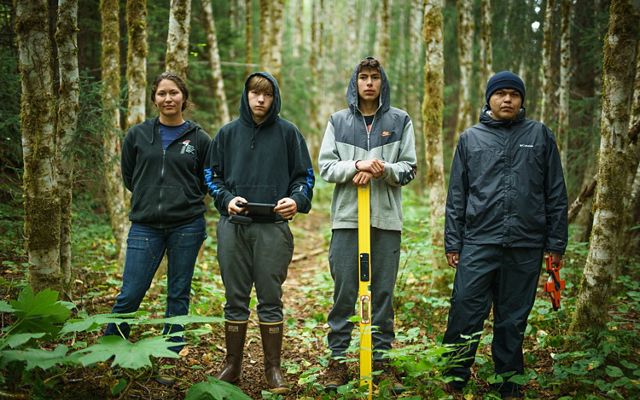Dr Steve Urlich is a senior lecturer in environmental administration at Lincoln College, Te Whare Wānaka o Aoraki.
OPINION: The Authorities’s new environmental administration flagship could also be headed for an iceberg.
The Titanic-sized Pure and Constructed Environments Invoice (NBEB), at 800 pages, guarantees a lot in the best way of improved environmental and societal wellbeing. These are to be promoted as “system outcomes”.
For instance, there may be the safety or restoration of the ecological integrity, mana and mauri of air, land, soils, wetlands, rivers and the coastal atmosphere.
One other consequence is that city and rural areas meet the varied and altering wants of individuals and communities.
READ MORE:
* Saving biodiversity begins right here at residence with altering agriculture
* Race to the underside in RMA reform
* Māori view entrance and centre of draft regulation to switch RMA
Tangata whenua relationships with ancestral lands and different taonga are additionally to be recognised and supplied for, together with their tikanga and kawa (protocol).
There are different worthy and obligatory outcomes, comparable to mitigating greenhouse gases. Nevertheless, there is no such thing as a hierarchy of those within the NBEB. That is arguably a major flaw.
There are more likely to be conditions the place the outcomes compete, with trade-offs seemingly inevitable.
Housing wants and extremely productive land for farming is one; forestry and land stability is one other.
Braden Fastier/Nelson Mail
The administration of forestry land earlier than, throughout and after logging is a transparent instance of environmental coverage needing higher regulation.
Communities can have a say in these tradeoffs by improvement of regional plans, and likewise in regional “spatial methods” required by the Spatial Planning Invoice – the NBEB’s accompanying twin.
This trade-off or “balancing” strategy led to important ecological injury over the RMA’s first 20 years, till environmental limits have been reaffirmed by the Supreme Courtroom in 2014.
The place these limits have been breached, the NBEB permits “targets” to be set for restoration, and that’s the place the waters turn out to be a bit murky.
Environmental limits are outlined as “a restrict set for ecological integrity of human well being”
What’s regarding is that limits will probably be set on the date the NBEB turns into regulation in 2023:
This may increasingly appear an obscure level, however it’s probably important.
One interpretation is the present degradation of freshwater, estuaries, coastal waters, and biodiversity is to be baked in from 2023.
Richard Cosgrove/Fish & Recreation
An algal bloom on Lake Forsyth in Canterbury, which has been bedevilled by run-off from the encircling land.
That might imply that nitrate-laden rivers and mud-clogged, eutrophic estuaries are right here to remain.
If right, this can be a great distance from “te oranga o te taiao” – the te ao Māori idea within the NBEB, which suggests the well being of the pure world, its life-supporting capability, and interconnectedness.
This additionally recognises the intrinsic relationship between iwi and hapū with te taiao (the atmosphere). That is expressed in numerous methods, comparable to the gathering of wholesome mahinga kai, which degraded waterways stop.
The Authorities’s Environmental Reporting Act experiences reveal widespread ecological injury all through the motu. As UN Chief António Guterres stated lately, we’re at warfare with nature.
The Authorities might argue that its latest freshwater coverage will see enhancements in a technology.
Nevertheless, NBEB permits exemptions from environmental limits, if there are public advantages that justify such a breach. Exemptions are topic to a time restrict, however that is additionally as much as ministerial discretion.
STUFF
Setting Minister David Parker explains how the Useful resource Administration Act will probably be changed by three new legal guidelines. (Video first revealed in February 2021)
That may very well be many years, if in any respect, for a lot of ecosystems, as there are already contaminant masses inexorably on their approach to aquifers and estuaries which can take a few years to totally manifest.
The wriggle room within the NBEB displays that a lot of our economic system relies on low-value, high-volume industries, which have externalised the environmental prices of clearfell and intensive practices.
It has turn out to be politically troublesome and dear to abruptly transition away from these ecologically damaging actions that influence many habitats and their related threatened species.
The latest session course of on altering the nationwide plantation forestry commonplace displays this.
The Authorities proposes to proceed the intensive clearfelling of pines on steep, eroding hillslopes.
This can lead to slash (logs, branches) left in gullies and different precipitous areas, which heavy rainfall can trigger to slide and transfer, inflicting life-threatening and environmentally hazardous particles flows.
Provided
Dr Steve Urlich is a senior lecturer in environmental administration at Lincoln College
That is solvable by replanting laws to retire and stabilise high-risk areas into indigenous cowl. This higher protects river and estuary ecosystems, and their carbon storage and biodiversity.
Such environmental limits will profit us economically, as stabilising landscapes underneath local weather change will assist to mitigate emissions and keep away from the prices of repairing properties and infrastructure.
In essence, what occurs in manufacturing landscapes impacts pure ecosystems by runoff and different impacts.
There isn’t a separation in ecological phrases, however at present there may be in financial ones.
If we’re to make peace with nature and so turn out to be tūpuna pono (good ancestors), ecological integrity must be the best precedence consequence and absolutely the bottom-line within the new laws.
- Submissions on the NBEB shut on February 5, 2023 at https://www.parliament.nz/en/pb/sc/make-a-submission/


